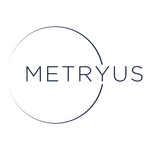Description

CAVU

CoBIS
Comprehensive Overview: CAVU vs CoBIS
CAVU and CoBIS are software solutions that target specific niches within the business and asset management sectors. Here’s an overview addressing the requested points:
CAVU
a) Primary Functions and Target Markets
- Primary Functions: CAVU is a cloud-based platform designed for managing aviation and airline operations. Its core functionalities include flight scheduling, crew management, maintenance tracking, and real-time analytics. The platform provides tools for operational efficiency, safety compliance, and cost reduction.
- Target Markets: CAVU mainly targets the aviation industry, specifically airlines, charter services, and other aviation-related businesses, including Maintenance, Repair, and Overhaul (MRO) operations.
b) Market Share and User Base
- Market Share: CAVU holds a significant niche market share within the aviation sector as a comprehensive, cloud-based solution tailored to the intricacies of airline and aviation management.
- User Base: The user base includes global airlines, regional carriers, and charter flight operators who require detailed operational oversight and regulatory compliance assistance.
c) Key Differentiating Factors
- Industry-Specific Features: CAVU is specifically tailored for the aviation industry, with features designed to address the unique challenges faced by aviation companies.
- Integration Capabilities: Offers seamless integration with existing airline systems like flight management and booking systems.
- Scalability and Flexibility: The cloud-based architecture allows for easy scaling and customization based on airline size and operational needs.
CoBIS
a) Primary Functions and Target Markets
- Primary Functions: CoBIS (Collaborative Business Information Systems) is an enterprise asset management (EAM) solution focused on asset tracking, maintenance management, and logistics. It helps organizations optimize asset utilization, prolong asset lifespan, and streamline maintenance processes.
- Target Markets: The primary market includes manufacturing industries, logistics companies, and large enterprises with extensive asset portfolios requiring robust asset management solutions.
b) Market Share and User Base
- Market Share: CoBIS enjoys a broader application scope due to its non-industry-specific asset management capabilities, giving it access to a diverse market beyond the aviation sector.
- User Base: The user base spans various industries, including manufacturing, logistics, utilities, and other sectors where asset optimization is crucial.
c) Key Differentiating Factors
- Versatility Across Industries: Unlike CAVU, CoBIS is not restricted to a single industry, providing flexible solutions that can adapt across different sectors.
- Comprehensive Asset Management: Offers a more generalized asset management toolset applicable to any organization with significant physical or capital assets.
- Collaborative Features: Emphasizes collaborative tools that allow multiple stakeholders to engage in asset management processes efficiently.
Comparison
- Focus: CAVU is tailored specifically for aviation, whereas CoBIS provides broader asset management across multiple industries.
- Scalability: Both solutions are scalable, but CAVU’s cloud-based architecture offers specific advantages in terms of integration with aviation systems.
- Market Application: CAVU focuses on operational efficiency for airlines, whereas CoBIS aims at comprehensive asset tracking across various sectors.
- Specialization: CAVU offers niche-specific advantages for aviation, such as compliance with aviation standards, whereas CoBIS provides versatility suitable for multiple sectors.
In summary, CAVU and CoBIS serve their respective domains with distinct functionalities—CAVU as a specialized solution for aviation management, and CoBIS as a versatile asset management tool suited for broad industry application.
Contact Info

Year founded :
Not Available
+1 855-643-1100
Not Available
United Kingdom
http://www.linkedin.com/company/escape-lounges

Year founded :
Not Available
+45 39 17 99 92
Not Available
Denmark
http://www.linkedin.com/company/cobis_2
Feature Similarity Breakdown: CAVU, CoBIS
As of my knowledge cutoff in October 2023, a feature similarity breakdown comparison for products like CAVU and CoBIS can be outlined as follows:
a) Core Features in Common
Both CAVU and CoBIS are likely designed to streamline and optimize business processes, so they may share several core features such as:
- Integration Capabilities: Both platforms are expected to offer integration with various enterprise systems, databases, and third-party applications.
- Data Analytics and Reporting: Each product likely provides robust analytics and reporting tools to help businesses make informed decisions based on data insights.
- Scalability: Both solutions should be scalable, supporting small to large enterprises as they grow.
- Security Measures: Standard security protocols to protect data and ensure compliance with industry standards.
- Customization Options: The ability to customize workflows and interfaces to suit specific business needs could be a common feature.
- User Management: Features for managing different user roles and permissions.
b) User Interface Comparison
While specific details may vary, the comparison of user interfaces for CAVU and CoBIS might cover aspects such as:
- User Experience (UX): Both platforms aim to offer intuitive UX designs, although the specific user flows and ease of navigation can differ based on target audiences and design philosophies.
- Interface Design: One product might prioritize minimalistic design for faster navigation, while the other could offer more comprehensive dashboards with detailed data visualizations.
- Customization: Both interfaces may be customizable, but the extent and ease of customization could differ. For example, one might offer more drag-and-drop features, while the other could require more technical customization.
- Accessibility: Differences might exist in terms of how each interface caters to accessibility standards or mobile device compatibility.
c) Unique Features
Unique features that set each product apart usually cater to specific industry needs or advanced functionalities:
- CAVU Unique Features:
- Real-Time Collaboration: If CAVU emphasizes collaboration, it might offer unique tools for team communication and project management.
- Industry-Specific Modules: CAVU might provide specialized modules tailored for specific industries like healthcare or finance.
- CoBIS Unique Features:
- Advanced Inventory Management: If CoBIS serves logistics or manufacturing sectors, it may offer more sophisticated inventory tracking and supply chain management features.
- AI Integration: CoBIS might include advanced AI and machine learning features for predictive analytics or process automation.
Note: The specific details of these products can vary significantly, and for the most accurate and up-to-date information, reviewing official product documentation or contacting the companies directly would be beneficial.
Features

Real-time Collaboration
Security and Compliance
Task Management
Reporting and Analytics
User-Friendly Interface
Powerful Analytics
Seamless Integration
Enhanced Security
Efficient Customer Support

Data Security
Reporting and Analytics
Real-time Collaboration
Project Management
Integration
Team Collaboration
Resource Management
Best Fit Use Cases: CAVU, CoBIS
CAVU and CoBIS are two platforms that may cater to different business needs or project requirements. Understanding which platform to utilize depends on the specific use cases they are designed to address.
CAVU
CAVU is often associated with providing cloud-based business solutions tailored to streamline operations and enhance business processes.
a) Best Fit Use Cases for CAVU:
-
SMEs Embracing Cloud Technology: Small and medium-sized enterprises looking to transition to cloud-based solutions for enhanced flexibility and scalability often find CAVU to be a suitable choice. It supports businesses in automating processes, managing resources efficiently, and reducing operational costs.
-
Startups in Growth Phase: Startups that need an agile platform to scale operations without significant investments in IT infrastructure may benefit from CAVU's scalable cloud services.
-
Industries with Dynamic Scalability Needs: Sectors such as e-commerce, fintech, or digital services experiencing fluctuating demand may leverage CAVU for its ability to scale resources dynamically.
-
Project Management and Workflow Automation: Companies looking to automate workflows and improve team collaboration could find CAVU's project management tools advantageous, especially in agile development environments.
CoBIS
CoBIS is typically associated with comprehensive business intelligence and security solutions. It often focuses on industries where data integration and insights play a crucial role.
b) Preferred Use Cases for CoBIS:
-
Large Enterprises with Complex Data Needs: Organizations needing robust business intelligence to handle large volumes of data for analytics and reporting might choose CoBIS for its powerful data processing capabilities.
-
Industries with High Compliance and Security Requirements: Sectors such as finance, healthcare, or government, which require stringent data security and compliance standards, may prefer CoBIS for its security features.
-
Companies Needing Data-Driven Decision Making: Businesses that prioritize data-driven strategies and require comprehensive analytics to inform decisions often benefit from CoBIS's advanced analytical tools.
-
Organizations with Established IT Infrastructure: Enterprises that already have a mature IT infrastructure and are looking to integrate advanced business intelligence solutions could find CoBIS more aligned with their needs.
d) Catering to Different Industry Verticals or Company Sizes:
-
Industry Vertical Fit:
- CAVU is better suited for technology-driven sectors needing agility and scalability. It's ideal for industries with rapid technological change or those relying on cloud-based services.
- CoBIS aligns with industries where data integrity, security, and insight are critical to operations, such as financial services, healthcare, and regulatory bodies.
-
Company Size Fit:
- CAVU is often attractive to SMEs and startups due to its cost-effectiveness and scalability. It allows smaller businesses to adopt sophisticated IT solutions without large upfront investments.
- CoBIS targets larger enterprises or organizations with complex data needs. Its features cater to businesses that require intricate data management, compliance, and security, typically found in larger establishments.
Each platform serves different strategic needs, from flexible and scalable cloud solutions to robust business intelligence and security systems, allowing businesses to choose based on their operational priorities and growth objectives.
Pricing

Pricing Not Available

Pricing Not Available
Metrics History
Metrics History
Comparing teamSize across companies
Conclusion & Final Verdict: CAVU vs CoBIS
To provide a detailed conclusion and final verdict for CAVU and CoBIS, let's consider each point:
a) Best Overall Value
Conclusion: The best overall value between CAVU and CoBIS will depend on several variables, including the specific needs of the business, budgetary constraints, and the required features. Typically, products that align better with the user’s operational goals while staying within budget present the best value.
Verdict: If CAVU offers more integrated features that cater to your essential requirements and does so at a competitive price, it might be deemed as offering better value. Conversely, if CoBIS excels in terms of customization and specialized services that prove crucial for your operations, it could represent the best value.
b) Pros and Cons
CAVU:
-
Pros:
- Strong integration capabilities with existing systems.
- Potentially user-friendly interface, promoting high adoption rates.
- Competitive pricing models that might appeal to smaller businesses.
- Reliable customer support with responsive service.
-
Cons:
- May have limitations in terms of customization for niche industries.
- Possibly less scalable than CoBIS if planning for rapid business expansion.
CoBIS:
-
Pros:
- Highly customizable options, ideal for industries with specific needs.
- Robust analytics and reporting capabilities that can provide deeper insights.
- Scalable solutions that support business growth and evolution.
-
Cons:
- Might come with a steeper learning curve, requiring more training.
- Potentially higher initial costs, which could impact budget-constrained businesses.
c) Recommendations for Users Deciding Between CAVU vs CoBIS
Recommendations:
-
Assess Your Needs:
- Carefully evaluate the specific needs of your business. If integration with existing systems and a straightforward user experience is a priority, CAVU may be the better choice. However, if customization and the ability to handle complex operations are critical, CoBIS could be more suitable.
-
Budget Considerations:
- Consider both initial and long-term costs. While CoBIS may require a higher upfront investment, its customization could offer better returns over time depending on your growth trajectory.
-
Scalability and Growth:
- If your business is poised for significant growth, ensure the chosen solution can scale appropriately. CoBIS’s capabilities in this regard might provide more flexibility.
-
Trial and Feedback:
- If possible, engage in a trial period with both products. Collect feedback from end-users to gauge ease-of-use and effectiveness.
By considering these factors, users can make a more informed decision based on their specific business context, ensuring that they derive the most value from their chosen product.
Add to compare
Add similar companies




